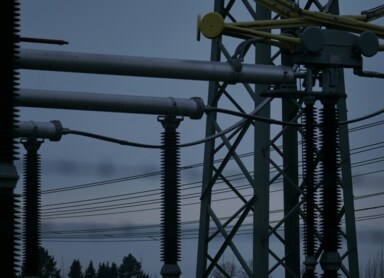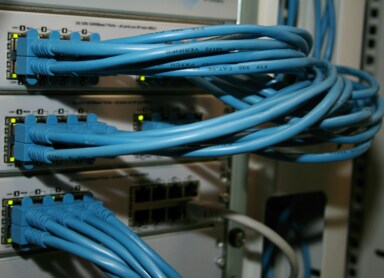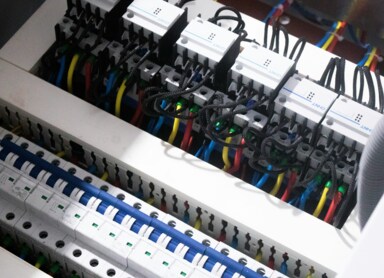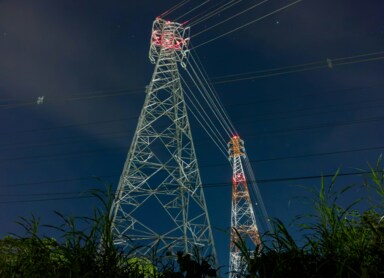Energy security - what is it, what influences it?
On a day-to-day basis, the fact that we can use electrical appliances in our home or business or fill up our car at the petrol station seems obvious to us. And indeed it is so provided the country is energy secure. What does this mean? How do we understand the concept of energy security?
Energy security - definition and influencing factors
A definition of energy security can be found in Article 3(16) of the Energy Law1. According to this provision, energy security is understood as a state of the economy that makes it possible to cover the current and prospective demand of consumers for fuels and energy in a technically and economically reasonable manner, while maintaining the requirements of environmental protection.
In other words, in an energy-secure state, a company's management does not have to wonder whether in a month or a year there will be a shortage of electricity to power industrial lines or whether it will suddenly and sharply become more expensive. Energy security can be seen in the short term and in the long term. In the short term, a secure country is one where the risk of disruption to energy access is low and the entire electricity system reacts quickly to changes between demand and supply, e.g. through energy balancing.
In the long term, on the other hand, energy security is about ensuring the availability of energy resources and making investments to meet society's growing needs. Such a step could be, for example, the construction of a nuclear power plant or the creation of a large energy cluster.
It is important to realise that no country is an island and that energy security exists both locally and globally. In the former case, it is primarily about the ability of the national infrastructure to produce and transfer energy, and to ensure that prices are stable and can be regulated smoothly and protect consumers. An example of such a 'shield' shielding consumers was the temporary freeze on electricity, gas and heat prices.
Global energy security is based on geopolitics, the ability of the electricity grids of different countries to cooperate with each other, but also the introduction of solutions that protect the environment, such as the promotion of technologies that enable the extraction of resources from Renewable Energy Sources (RES).
Energy security of Poland - situation, challenges and prospects
Poland's energy security is being developed within a document referred to as the Polish Energy Policy (PEP). The current guidelines provide for a roadmap up to 2040. Three pillars of this system are identified2:
- Pillar I is a just transition, which includes the transformation of coal regions, the reduction of energy poverty and the development of RES and nuclear-related industries;
- Pillar II involves the creation of a zero-carbon energy system through investments in offshore wind, nuclear and local and civic energy;
- Pillar III involves improving air quality through the transformation of district heating, the increase in zero-energy buildings and the development of electromobility.
Let's take a look at how the latest PEP looks in numbers. The Climate Ministry assumes that the share of RES in total gross energy consumption will be 23% by 2030. At the same time, it is to increase to 14% in transport, to 28% in heating and cooling and a minimum of 32% in electricity generation.
Energy security of the European Union - policy and action
Looking after energy security is not only a matter for Poland, but also for the European Community as a whole. The general framework in this respect is set by the Treaty on the Functioning of the European Union. The Energy Union, set up to guide action to strengthen the EU's energy foundation, identifies five objectives that are gradually but consistently being pursued through, inter alia, the implementation of harmonised Community legislation. These include3:
- diversifying energy sources and building energy security through solidarity and cooperation between Member States;
- ensuring an integrated energy market which allows energy exchanges without technical or legislative barriers;
- increasing energy efficiency by, inter alia, reducing dependence on energy imports, limiting emissions and stimulating the development of energy-related industries;
- moving towards a low-carbon economy while reducing Member States' reliance on the coal economy;
- supporting research into energy technologies that do not exploit the environment.
Threats to energy security - analysis and risk management strategies
Maintaining energy security is a daunting task, and it can only be achieved if the state properly controls a whole range of factors. Which factors are primarily at stake?
From the consumer's point of view, acceptable prices are crucial. Their level depends on the costs of energy generation, transmission and distribution. While energy prices for consumers are controlled by the Energy Regulatory Office, businesses cannot count on such a "concessionary tariff". A properly developed and maintained infrastructure is also a factor in energy security, as energy should be available on demand.
The state should ensure that healthy competition is maintained in the market. Excessive concentration of suppliers can lead to a situation where energy prices are difficult to control and the stability of the electricity system is undermined. Also important are:
- the creation of a network of energy system interconnections - the more interconnections there are, the more options the state has to prevent disruptions in the energy sector;
- the fungibility of fuels, i.e. the possibility of converting one fuel into another (e.g. coal into gas or gas into liquid fuel) increases the resilience of the national system against possible factors that could destabilise the energy sector. The advantages of RES are particularly evident in this field.
One should not forget about political threats either. The lack of a coherent vision of Poland's energy security, lobbying for systemically unfavourable solutions or, finally, armed conflicts or terrorist attacks may weaken the Polish energy system.
Innovation in energy security - technological solutions and the future
National energy security is elemental to defence, but it must also be seen through the lens of the needs of a specific company. Imagine the effects of a blackout on your company. How can you avoid them?
To prevent unforeseen energy problems, invest in renewable energy technologies. Also sign a power sales contract with a reliable supplier. Consider becoming part of a local energy cluster. Implement solutions to reduce your electricity demand. The less energy you need, the less risk there is of your needs not being met.
Look at energy security holistically, but remember that it is of great importance to each and every one of us. At REO.PL, we do not treat this issue as a purely academic concept, but provide our customers with solutions that allow them to feel more secure on a day-to-day basis.
1. https://isap.sejm.gov.pl/isap.nsf/DocDetails.xsp?id=wdu19970540348
2. For more on Poland's Energy Policy, see: https://www.gov.pl/web/klimat/polityka-energetyczna-polski.
3. You can read about the European Union's energy strategy here: https://energy.ec.europa.eu/topics/energy-strategy/energy-union_en?prefLang=pl.







